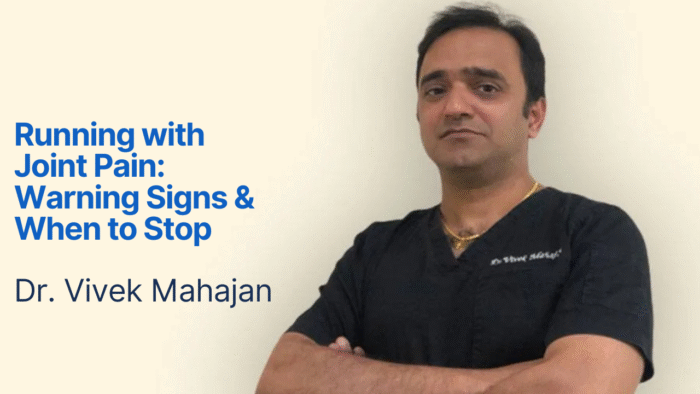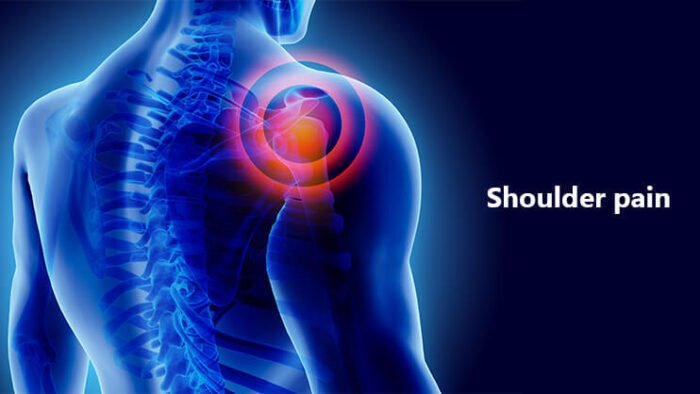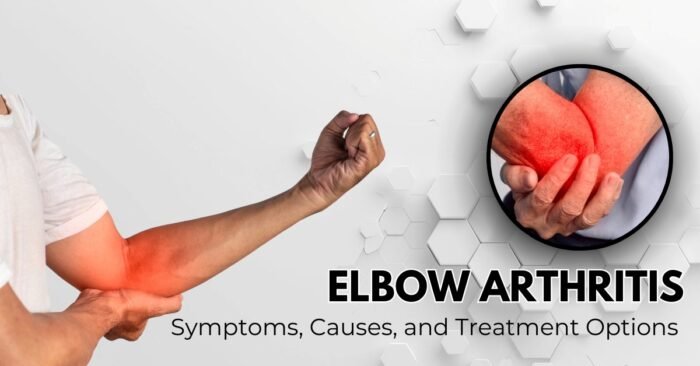Running with Joint Pain: When to Stop and When to Seek Help
Running is one of the most accessible and effective forms of exercise, but it can become a double-edged sword if you’re experiencing running with joint pain. Many runners, from beginners to seasoned marathoners, often ignore early signs of joint discomfort, leading to long-term issues. In this blog, we’ll explore when joint pain should be taken seriously, when to stop running due to joint pain, and when to seek help from an orthopedic specialist like Dr. Vivek Mahajan.
Why Do You Experience Joint Pain While Running?
Experiencing knee pain while running or joint discomfort after a jog is not uncommon. It may be caused by overuse, poor running form, inadequate footwear, or underlying health issues such as arthritis or cartilage degeneration. If you continue to ignore the pain, you may face more serious consequences, such as chronic joint problems or injury to surrounding ligaments and tendons.

Key Warning Signs Running is Damaging Your Joints
Not all pain is harmful, but it’s essential to distinguish between normal muscle soreness and pain that could signal injury. Here are a few signs running is damaging your joints:
- Persistent swelling or stiffness
- Pain that worsens with activity
- Clicking, grinding, or locking in joints
- Pain lasting more than 48 hours
- Inability to bear weight comfortably
If any of these symptoms are present, it’s crucial to pause your running routine and consult a specialist like Dr. Vivek Mahajan, an experienced orthopedic surgeon in Delhi.
When to Stop Running Due to Joint Pain
Knowing when to stop running due to joint pain can protect you from worsening the condition. Here are some situations where you should stop immediately:
- Pain alters your running gait
- Swelling increases during or after running
- Pain persists even after rest or icing
- You need medication to get through a run
Stopping doesn’t mean giving up. It means you’re prioritizing your long-term joint health and performance.
When to Seek Help from an Orthopedic Specialist
You should seek professional help when:
- Pain interferes with daily activities
- You’ve tried rest, ice, and stretching with no relief
- Pain recurs every time you run
Consulting an orthopedic expert like Dr. Vivek Mahajan can help identify the root cause of your pain. He specializes in joint preservation, sports injury management, and advanced orthopedic care tailored for active individuals.
Preventive Tips for Runners with Joint Pain
To continue your passion for running without damaging your joints, follow these preventive measures:
- Warm up before every run
- Strengthen muscles around the joints
- Choose shock-absorbing, supportive footwear
- Cross-train with low-impact activities like swimming or cycling
- Stretch post-run to maintain flexibility
Dr. Vivek Mahajan recommends personalized strengthening and mobility programs for runners prone to joint pain, especially around the knees and hips.
Final Thoughts
Running with joint pain shouldn’t be taken lightly. Ignoring pain can lead to irreversible joint damage and extended downtime. By recognizing joint pain after running and knowing when to stop running due to joint pain, you can take proactive steps to protect your health.
Early intervention and expert care are key. If you’re struggling with joint discomfort, don’t delay—consult Dr. Vivek Mahajan, a trusted orthopedic expert known for helping runners and athletes return to pain-free movement with confidence.
About Dr. Vivek Mahajan
Dr. Vivek Mahajan is a leading orthopedic and joint replacement surgeon with expertise in robotic joint replacements, sports injuries, and non-invasive joint care techniques. With a patient-centric approach and advanced diagnostic tools, he has helped hundreds regain mobility and live pain-free.



